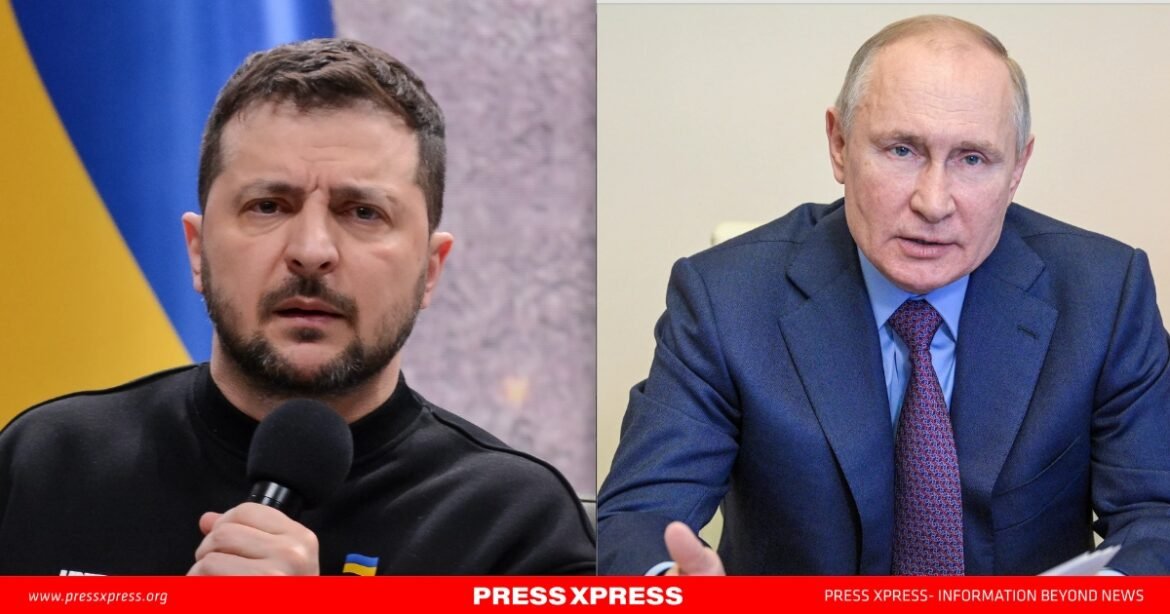After more than three years of devastating conflict, the peace talks held in Istanbul in May 2025 between Ukraine and Russia mark an important, if tentative, moment of hope. Although skepticism surrounds the talks, particularly due to the absence of Russia’s top leadership— the very fact that direct dialogue has resumed offers a valuable opportunity for progress. This article explores the conflict’s heavy toll, the developments surrounding the talks, and the broader implications for regional stability and global security, supported by recent data and expert perspectives.
A Conflict That Changed the World
Since Russia’s full-scale invasion in February 2022, the war has taken a tragic human toll. According to the United Nations, over 15,000 civilians have lost their lives, with millions displaced internally or forced to seek refuge abroad. The Internal Displacement Monitoring Centre reports approximately 8 million internally displaced persons within Ukraine and 6.5 million refugees across Europe.
The economic consequences have been staggering. Ukraine’s economy contracted by nearly 30% in 2022, with key infrastructure — including roads, railways, hospitals, and power grids — suffering damage valued at over $135 billion, according to Ukrainian government assessments. International aid has poured in, exceeding $52 billion, with the U.S. alone providing $15 billion in military and humanitarian assistance.

This conflict has also reverberated far beyond Ukraine’s borders, disrupting global supply chains, especially in energy and agriculture. Ukraine, often called the “breadbasket of Europe,” exports millions of tons of grain annually; interruptions have contributed to food insecurity worldwide.
The Istanbul Talks: An Important Opening
The talks, which commenced on May 14, 2025, were facilitated by Turkey and brought together representatives from both nations for the first time in years. Ukraine’s delegation was led by Chief Negotiator Mykhailo Podolyak, while Russia sent Deputy Foreign Minister Alexander Grushko. Notably absent was Russian President Vladimir Putin, which Ukrainian President Volodymyr Zelenskyy publicly criticized as a sign of Moscow’s uncertain commitment.
Despite this, the Istanbul talks focused on concrete, humanitarian issues: establishing safe corridors to evacuate civilians, prisoner exchanges, and exploring the possibility of localized ceasefires. Over 120,000 civilians have already been evacuated through newly opened humanitarian corridors, a significant milestone credited to these negotiations.
U.S. political figures, including former President Donald Trump and Senator Marco Rubio, have stressed that meaningful progress requires direct engagement between top leaders. This underscores how the resolution depends as much on political will as on battlefield realities.
Positive Developments and International Support
While the road ahead remains difficult, some tangible steps have already emerged from these talks:
- A 40% reduction in frontline skirmishes has been observed in areas near the proposed ceasefire zones.
- Over 800 prisoners have been released in preliminary swaps, easing humanitarian pressures.
- International organizations like NATO, the EU, and the UN have voiced support for continued dialogue, balancing ongoing sanctions on Russia with diplomatic incentives.
- Energy markets have seen decreased volatility following the talks, providing some relief to global consumers.
- Ukraine has resumed partial grain exports through the Black Sea, helping stabilize food supplies for over 40 countries.
Geopolitical and Economic Stakes
Peace in Ukraine would have profound consequences:
- It would stabilize energy prices, which had surged amid uncertainty, with oil and gas prices dropping by 5% in the immediate aftermath of the talks.
- Reopening Ukrainian ports for grain export could ease food shortages and price hikes affecting vulnerable regions in Africa and the Middle East.
- A peaceful resolution would reinforce international norms against aggression, strengthening multilateral institutions.
- It would allow NATO and European countries to refocus resources on climate adaptation and technological innovation, boosting long-term prosperity.
Data Highlights
- Stockholm International Peace Research Institute (SIPRI) estimates Russia’s 2024 military spending at $92.5 billion, slightly reduced due to sanctions.
- Ukraine increased its defense budget to approximately 6.2% of GDP in 2024 (about $9.5 billion), sustained by Western aid.
- The World Bank projects Ukraine’s GDP could grow by over 4% annually from 2025 to 2030, conditional on sustained peace and reconstruction.

Fragile, But a Step Forward
Though the absence of Russia’s top leadership tempers optimism, the Istanbul talks are an essential diplomatic step. They open channels for humanitarian relief, build confidence between parties, and lay groundwork for future negotiations.
With sustained international support and political courage, this fragile dialogue could transform into a lasting peace — stabilizing a region vital not only to Europe but to the entire world economy and security order.


